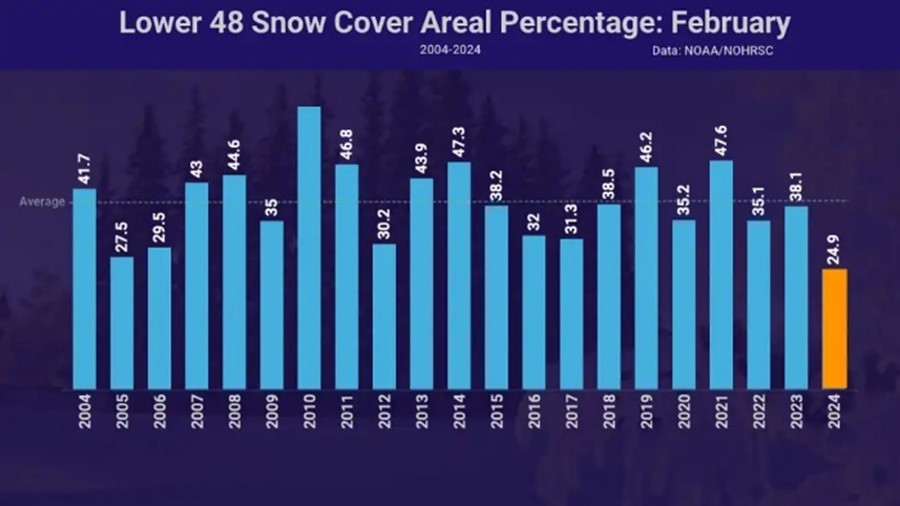Does a warm winter mean increased insect pressure?
Katelyn Miller, Field Crops and Forage Specialist
Southwest New York Dairy, Livestock and Field Crops Program
According to data from the National Oceanic and Atmospheric Administration (NOAA), December through February was the Lower 48's warmest winter recorded in 129 years. This winter topped the previous record from 2015-16 by 0.82 degrees Fahrenheit. New York was one of eight states that experienced the warmest winter on record, causing issues with maintaining snow cover and ice cover on Lake Erie. Additionally, the average snowfall in February was the smallest snow cover we have experienced in 20 years. Many knew, even without this data, that this winter was abnormal in temperature and snowfall; so how could that impact insect pressure this growing season?

In the Northeast, insects survive most commonly through migration and overwintering strategies. Insects such as potato leaf hopper rely on migration as they typically cannot survive winters in the Northeast. Other insects like alfalfa weevil take shelter in the field. Adults will remain dormant in alfalfa fields or sheltered grassy areas where snow will serve as insulation. White grub species like June beetles will overwinter in the soil where temperatures remain above air temperature. While these are just some examples of pests and their overwintering strategies, there are some factors that may impact the survival of insects:
- Large temperature swings can be detrimental to insects. An insect may become active when they would normally be dormant, and this can cause mortality if there is not enough food.
- Above-ground overwintering insects may be more likely to survive with fewer cold days. On the flip side, a lack of snow could expose insects to below freezing temperatures.
- A mild winter will likely not have a detrimental effect on insects that overwinter in the soil because of consistent soil temperatures.
It's important to remember that all these principles apply to beneficial insects as well, which could be positive. So back to our original question; does a warm winter mean increased pest pressure? Time will only tell. While it's uncertain how this weather will truly impact pest pressure, it's important to be prepared. Pest scouting as part of an integrated management plan will help you make economical pest control decisions.
Upcoming Events
WNY Pastureland Conversion & Soil Health Field Day
July 16, 2025
Middleport, NY
Join American Farmland Trust for the Western New York Soil Health Field Day on July 16, 2025, at Zeliff Farm in Middleport, NY, from 9:00 AM-3:15 PM. Learn about pasture conversion, soil health benchmarking, biochar in grazing systems, and best grazing practices. Plus, enjoy hands-on demos with the NY Soil Health Trailer, drones, and cover crops! Check out the attached agenda for more information about the field day and REGISTER HERE. Zeliff Farms is a regenerative beef operation who has recently partnered with AFT on outreach and education to farmers including learning circles and evaluating biochar effects on soil health.
IPM Strategies to Protect Corn and Soybean Seed in NY
July 30, 2025
Hamburg , NY
SWNYDLFC and Cornell IPM are hosting a grower meeting to discuss integrated pest management strategies for protecting corn and soybean seed in New York.
FAMACHA Training for Sheep and Goat producers in Woodhull NY
August 13, 2025 : FAMACHA Training in Woodhull
Woodhull, NY
Join us for a discussion and hands-on training for internal parasite integrated pest management in sheep and goats. Certification is available to all students participating in the workshop.
Announcements
No announcements at this time.





